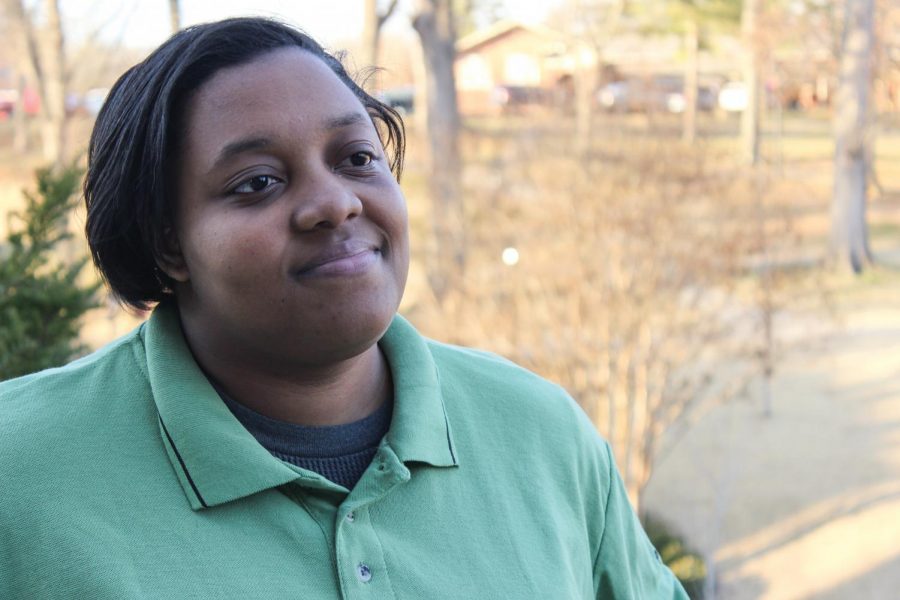Minority students work to create better campus
February 26, 2015
Although minority students at UNA are sometimes forgotten, this has not stopped them from working year-round to give back and improve campus.
Senior Deondrick Orr, a member of Phi Beta Sigma Fraternity, Inc. said when students limit themselves to a small circle of friends, they do not realize they are
a minority.
“Until you look at the numbers, it doesn’t really affect you,” he said. “You have to commit to diversity at
this school.”
Orr said he considers himself an “agent of change” and tries to include what he was taught at home in everything he does.
“I was always told you have to think different, be different and evolve,” he said. “You really have to provoke change and thought in the people.”
UNA National Association for the Advancement of Colored People President Destiny Battles said though she was passionate about starting a chapter on campus, she would not have continued without the support from the Student Engagement Office.
“I think Student Engagement felt NAACP was absolutely necessary,”
she said.
Battles said fighting for acceptance at UNA has been challenging for her but thinking about her ancestors helps
her carry on.
One of the biggest obstacles in attracting new members to NAACP is competition with organizations students feel look better on a resume, Battles said, rather than ones that will help have their voices heard.
“If I did have an organization that was not necessarily supportive in all the right ways, I would probably say SGA,” she said. “We’ve lost a lot of people to SGA and graduation, but mostly to SGA.”
Battles said students have come to her saying SGA is not as accepting of African-American members as it used to be, she said.
As a new organization, chartered in 2012, limited funding has made it difficult to host events, she said.
At one event this past year, everyone wore blindfolds and could not speak, she said. People had to trust what they could not hear or see.
“You have to work with people and be accepting of all people and be blind about it,” she said. “You will defeat the stereotypes by ignoring them.”
The founders of NAACP were mostly white, she said: People seeking a change, no matter the race, are accepted.
Phi Beta Sigma, whose biggest principles are brotherhood, scholarship and service, host many events intended for all students on campus, he said.
“In five years we’ve gone from no one knowing about us to kind of being a common name around UNA,” he said. “We don’t have only black events. We have student events.”
On Martin Luther King Jr. Day, Orr along with SGA vice president of Senate Nick Lang and Leadership and Volunteerism of Student Engagement, organized a march encouraging students to spend their day off giving back and spreading King’s message of helping others.
Although the Phi Beta Sigma is historically black they accept all races, nationalities and religions, he said.
“We try to give as much back to the campus as possible,” he said.
Orr said he would like to see a more diverse ratio of students at UNA.
“I like the school, and I wish people could see the same things that I see about UNA,” he said.
Sophomore Dalia Gerardo, treasurer for the Hispanic Culture Organization, said she does not feel like a minority and thinks the majority works for everyone.
“I would like there to be more opportunities for Hispanic students,” she said. “We are a minority on campus, but we are an important component of the university. I think we need greater awareness of our culture and that is what HCO is working towards. ”
“It’s very exciting because there are people who are interested in our culture that probably wouldn’t learn about, if it weren’t for us,” she said.
The organization’s members actively host events each semester, she said.
“People are just interested in being involved on campus and we bring that to them,” she said.
There are future events planned including a bingo night called Loteria, and an event in April called Dia Del Nino (Day of the Child), she said.
“It’s a holiday in most Hispanic countries, and they celebrate children,” she said. “We wanted to bring that
to UNA.”
Battles said she is hopeful for the future, but believes change will only come when this generation pays attention to its past and the world around them.
“Know what you are,” she said. “Know who you are. Know where your ancestors have been so you know where to take your legacy and your history.”


